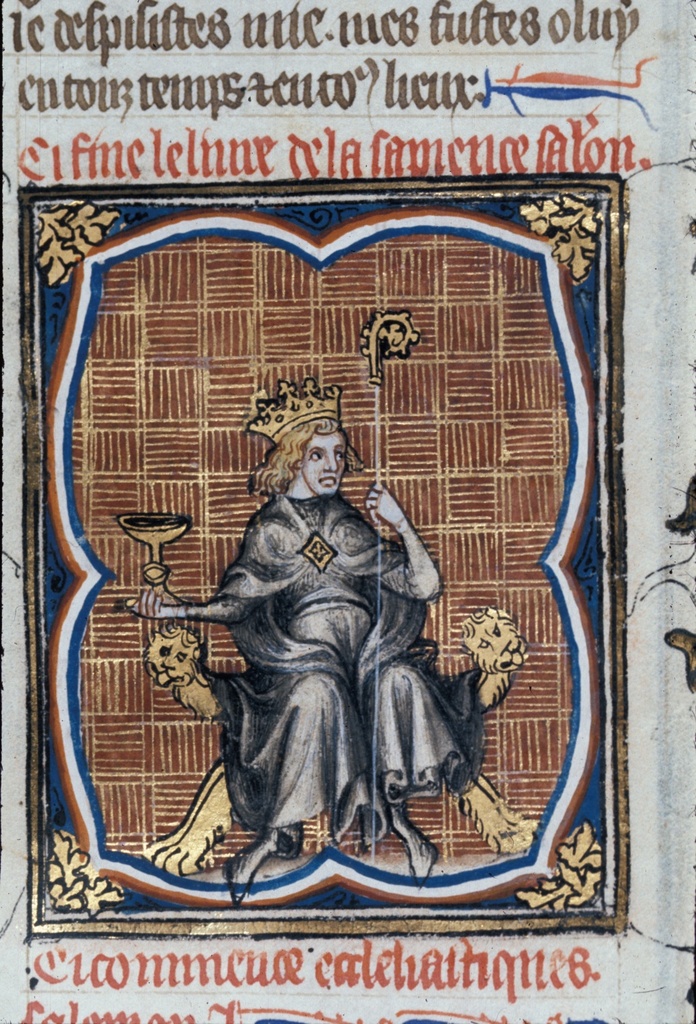We hear today one of the scriptural roots of the Jesus Prayer. Two blind men follow Jesus, “crying aloud, ‘Have mercy on us, Son of David’” (Matt 9:27). And later they call him “Lord” (9:28). And Jesus opens their eyes.
Even those of us who can see with the eyes of the body are often spiritually blind. We do not know where we are going in life. We cannot see where God is in all of this. Note that the blind men were blind in body but that they could nonetheless follow Jesus from one place to another (Matt 9:27-28). Following Jesus set them on the right course. First, they followed. Then they could see. It is the same with us. If first we will follow Jesus (even for our whole earthly lives), then we will spiritually see. Our vision of God’s presence in our lives will be 20/20 if we first live faithfully and then look back upon it. Perhaps we cannot always see where God is in our lives right now, but we know by faith that he is present and, if we follow him, he will give us eyes to see that he was with us all along. I have experienced this already in my own life. Most of the time, I know where God intends me to go only after I get there, like a blind man following him through the streets of the city.
But how can I begin or continue to follow Jesus if I am blind and do not see where he is? It would help then to call out to him, like the blind men do. I promise, it will help us just to call out his holy name – the name of Jesus. Let us pray the Jesus prayer:
Lord Jesus Christ, Son of God, have mercy on me, the sinner.
Can you hear how this is like the prayer of the blind men? “Have mercy on us, Son of David,” they pray. This is, as I say, one of the scriptural roots of the Jesus Prayer. There are also others:
- Another blind man sits outside of Jericho and similarly calls out to Jesus: “Jesus, Son of David, have mercy on me!” (Mark 10:47; Luke 18:38; cf Matt 20:30–31).
- The publican (unlike the Pharisee in Jesus’ parable) shows us how to pray when he bows his head, beats his breast, and says, “God, be merciful to me, the sinner” (Luke 18:13).
- In a village between Samaria and Galilee, ten lepers stand at a distance, lift up their voices and say, “Jesus, Master, have mercy on us” (Luke 17:13).
From these examples, I think we can see that the prayer of Jesus has been with us from the very beginning of Christianity. From these scriptural roots, the prayer developed further.
The Desert Fathers and Mothers of Egypt would frequently repeat short and simple prayers like these – “arrow prayers” we sometimes call them because, as St. Augustine observed, “the brethren of Egypt offer prayers that are frequent but very brief and suddenly shot forth” – rather like an arrow meant to pierce heaven.
Of these short prayers, St. Diadochus recommends we constantly repeat the utterly simple prayer, “Lord Jesus.” The frequent repetition of the divine name of Jesus serves as a constant reminder of his divine presence with us and helps us fulfill St. Paul’s instruction that we pray unceasingly (1 Thessalonians 5:17).
We are beset constantly by distracting thoughts and temptations, which threaten to remove remembrance of God from our minds and hearts. A short and simple prayer like this, that can be called upon at any moment and for any need, is a powerful tool against these thoughts and temptations. The prayer must be as constant as are the thoughts. It must be unceasing.
There are many ways to approach unceasing prayer. The Jesus Prayer is not the only way, but it is a great help and it may be the best way.
A benefit of constantly repeating this prayer is that it then enters into the unconsciousness and you begin to find it there behind the noise of life. It joins with your breathing and the beating of your heart – the rhythms of life itself – and helps us in this way to approach unceasing prayer and the constant remembrance of the presence of God.
Pray it at home and in church and in your car. Pray it a few times first thing in the morning and throughout the day as often as you can think of it and again before you go to bed. Pray the prayer while you do the dishes or the laundry. It was a great aid to Pani Katie while she was in labor. There is no time when it is not a good time to pray the Jesus prayer.

Sit quietly and pray it slowly again and again for 5 minutes or for thirty minutes. Use a chotki or don’t use a chotki. A chotki can be a helpful aid – a physical reminder to persist with the prayer when we become distracted by intrusive thoughts and imaginings. If you don’t have a chotki, get one. Some have 33 knots – one for each year of Jesus’ earthly life, others have 100 , or others 300. On each knot, you pray the Jesus Prayer. Simple.
There’s more than one way to say the Jesus Prayer. The formula of the Jesus prayer as we know it now –
Lord Jesus Christ, Son of God, have mercy on me, the sinner
– is good and was pretty well set already by the seventh century, but this is not to bind us and it’s not the only way. There’s no need to change it – all its elements are already there in the scriptural roots of the prayer, which I listed – but at the same time we may find other ways helpful.
We may want to pray as simply as St. Diadochus recommends: “Lord Jesus.” The holy name of Jesus itself is a saving cry. It means “the Lord saves” or “the Lord is a cry for salvation”. Or, you can add to it, as do some of the nuns at our Christ the Bridegroom Monastery, saying “Lord Jesus Christ, Son of the living God, have mercy on me, the sinner.” Or, we can simplify it a bit and pray “Lord Jesus Christ, have mercy on me,” as do many of the monks on Mount Athos. Or, we may wish to pray for others as well as ourselves and so pray “Lord Jesus Christ, Son of God, have mercy on us” – in the plural. (In this case, I personally recommend that we omit the word “sinners” because, while we accuse ourselves of sin, I find it better not to accuse others of sin while we pray). All this is to say that there are many good ways of praying the Jesus prayer. Pray it whichever way you will pray it. The important thing is to pray it.
The Jesus Prayer is the central private prayer of our spiritual tradition. So much so that some simply call it “the prayer.” It is profound, versatile, and life-changing. This is due above all to the holy name of Jesus, which is the name above every other name (Philippians 2:9). St. Theophan the Recluse says “The Jesus Prayer is like any other prayer. It is stronger than all other prayers only in virtue of the all-powerful name of Jesus, our Lord and Savior.” In his name and by his name, we find salvation. “There is no other name under heaven given among men by which we must be saved” (Acts 4:12).
Much information was provided by Kallistos Ware, “Foreword,” in On the Prayer of Jesus (Boston, Mass.: New Seeds, 2006)

